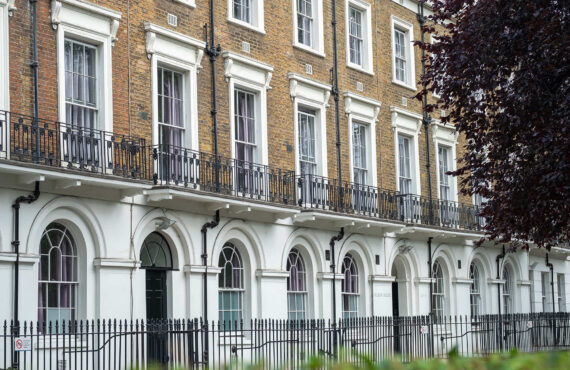
Despite much speculation that house prices could fall dramatically on the back of rising interest rates combined with the higher cost of living, there are few signs of this. Latest figures from the Office for National Statistics reveal that while the average UK house price edged down in December, prices were still £26,000 higher at the end of the year than at the start of 2022, with annual growth of 10.3 per cent in England.
Halifax reported that there was no change in average property prices in January, after falls in November and December, while the Royal Institution of Chartered Surveyors said house prices and sales fell in January. Meanwhile, Rightmove reports that average new seller asking prices remained flat in February, rising by just £14, the smallest ever increase from January to February. This reinforces the findings of other surveys which suggest that sellers are being more realistic when setting the asking price, perhaps realising that buyers relying on a mortgage are not in a position to pay inflated values. While average prices should always be regarded with some caution as they can mask significant regional differences, it appears as though the market on the whole is in for a soft landing rather than a hard bump.
Inflation is also moving in the right direction, dipping again in January to 10.1 per cent, down from 10.5 per cent in December, although it is still considerably higher than the Bank of England’s two per cent target. Indeed, while there was another 50 basis points increase in base rate earlier this month, taking it to 4 per cent, there is reason to be optimistic that we are nearing the end of the rate rises. The Bank projects that inflation will fall back sharply to around 4 per cent at the end of this year, with base rate expected to top out at around 4.5 per cent in the middle of this year before falling. The Bank warns that there is some uncertainty around this outlook but it’s encouraging news.
Swap rates influence fixed-rate pricing as they are the rate lenders pay to financial institutions to acquire fixed funding for a set period. They have been particularly volatile since the mini-Budget, with base rate increases, rising inflation, the fall in value of sterling and the war in Ukraine all making lenders more cautious when it comes to pricing new mortgages. Indeed, many lenders pulled a number of their products but Money facts reports that the number of mortgages available has risen again to 4,341 in January, up from 3,643 in January and from a low of 2,258 in October.
Fixed-rate mortgage pricing continues to fall with a number of five-year deals available from less than 4 per cent. Some borrowers who feel that they have further to fall are opting for variable-rate products with no early repayment charges with a view to moving onto a fixed rate should pricing ease further. However, if you need certainty to help with budgeting, a variable rate may not be suitable.
With so much uncertainty, it is important to seek advice. AWS Private Finance is a whole-of-market broker who will look for the best mortgage for your circumstances, comparing all the products on the market. Please get in touch for more information.






